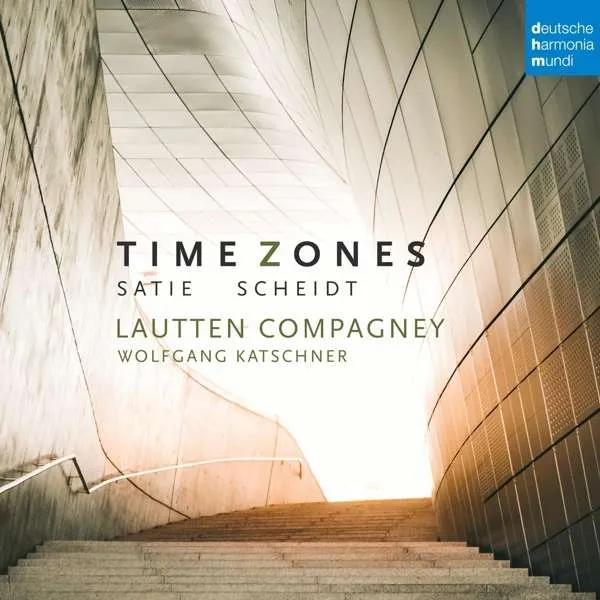
Time Zones Works by Satie and Scheidt (arr. for baroque ensemble) Lautten Compagney/Wolfgang Katschner DHM G0100044377293 (digital only) 65:38 mins
These are strangely effective bedfellows. Berlin-based ensemble Lautten Compagney is fond of quirkily creative combinations and its latest album, Time Zones, creates a musical dialogue between two thoroughly idiosyncratic figures: Erik Satie (1866-1925) and Samuel Scheidt (1587-1654) are separated by the distance between Paris and Halle, by three centuries and clearly by aesthetic. Nonetheless, there is a certain kinship in the way both composers stood resolutely apart from their peers, finding inspiration in the past for their music. Most of the Satie pieces were originally written for piano and are arranged here with whimsical flair by Bo Wiget for Lautten Compagney’s ever-shifting forces. The intertwining lines of Scheidt’s contrapuntal gems require comparable creative decisions since the instrumentation is never specified in his scores.
There is a broad nod to era, the chirpy recorders, cornett and trombones of the cheerful Canzon ad imitationem Bergamascaclearly Baroque in outlook, while Satie’s Pièces froides have the whiff of a Parisian café band. However, juxtaposition soon becomes exchange, Satie’s Avant dernières pensées sounding like a dreamy recollection of the vivacious movements from Scheidt’s Ludi musici I. There are delectably inventive stylistic flirtations, such as saxophone and marimba figuring prominently, and convincingly, in the ninth of Scheidt’s Siebzig Symphonien. Satie’s Sarabande No. 3 is utterly enchanting heard on two archlutes and chitarrone, and only the hardest of hearts could resist the amiable reimagining of his Les oiseaux for delicate plucked strings accompanying low recorder. Overall, a charmingly diverting set of new perspectives on both composers.
Christopher Dingle
